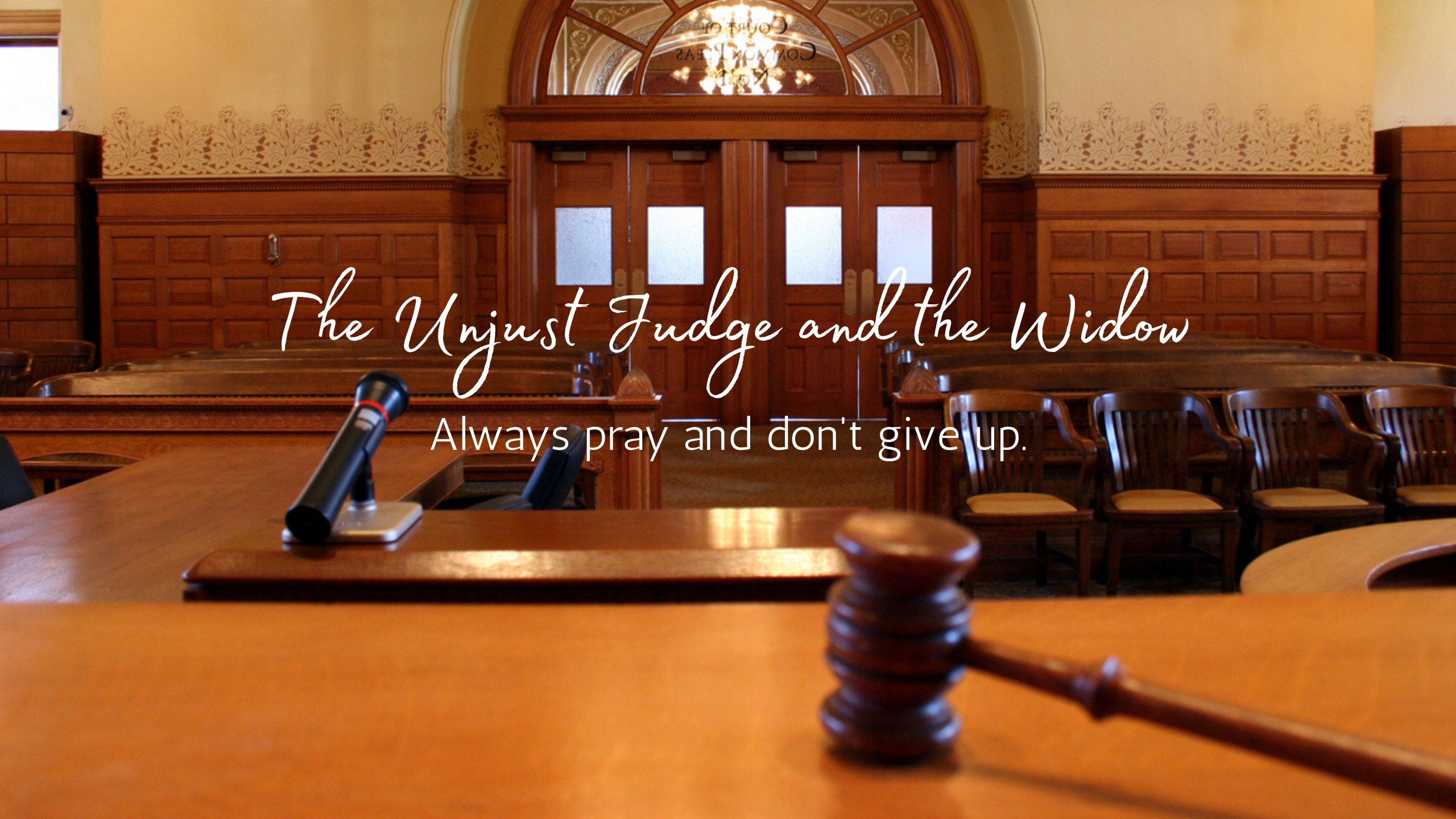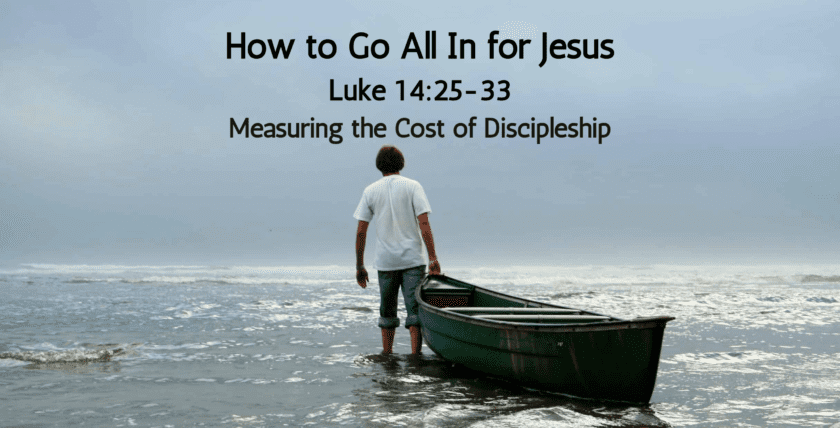Welcome back to Sonday Life. This week we’re continuing with the series we’ve been doing on the Parables of Jesus. The parable for this episode is *The Unjust Judge and the Widow. Many have misinterpreted this parable by thinking Jesus told the disciples to plead with God incessantly until he gave them what you’re praying for. But in this episode, you’re going to see what Jesus was really teaching the disciples with this parable.
To set the stage for this parable are the previous verses of Luke 17:20-37. In those verses, Jesus is asked about when the kingdom of God will come. He tells the disciples it will be like the days of Noah; people were eating and drinking and doing everyday things, and the flood happened. He also said it would be like the days of Lot in Sodom; a normal day, then bam, fire comes down from heaven. He said it will be just like those days when the Son of Man returns.
Then to begin Luke chapter 18, he tells the parable of the unjust judge and the widow (Luke 18:1-8).
Jesus states plainly why he tells the disciples this parable; they should always pray and not give up.
Why should they always pray and not give up? We’ll get to that at the end. But first, let’s look at how he gets his point across to them, always praying and not giving up. Let’s take a closer look at the parable about the unjust judge and the widow.
First, The setting; A certain town; it could be any town, anywhere, at any time.
The Characters;
- A judge;
- Didn’t fear God.
- Didn’t care what people thought (not about him or anything else).
- A widow;
- She kept coming to the judge with a single plea; Grant me justice against my adversary.
The Case;
- There was an injustice done to the widow.
- She could be young or old. Widows then were generally helpless, defenseless, and vulnerable to all kinds of injustice. The fact this woman is coming to the judge means there is no man in her life to support her. The courts at that time were for men, not women. If there were a man in her life (a father, brother, or relative of some kind), they would take her case to the judge. Since she is coming to the judge herself, she has no male support, so she is destitute, powerless, and helpless. She was unloved and uncared for. Her situation was desperate. According to the Mosaic Law, widows like her were to be cared for by the religious community. But she wasn’t cared for, and the judge didn’t care about the Mosaic Law.
The Actions;
- By the judge: He does nothing. He delayed a ruling on her case for ‘some time.’ Maybe he thought she would eventually give up or even die, and that would end it. Similar to our legal system today. If you have the money, you can delay a case until the other person either gives up or can’t afford the legal fees.
- What action does the widow take when the judge doesn’t respond to her request: She kept coming to the judge, meaning over and over and over and over again and again. She was relentless in pleading her case, saying, “Give me legal protection from my opponent.” What she wanted wasn’t to have the judge ‘avenge’ her situation but rather to ‘vindicate’ her by ruling in her favor. Her persistence indicates she had a justified legal claim that was being ignored by her adversary, probably because she’s a poor widow with no one to defend her. She wanted the judge to “Fix this injustice, and she wanted it NOW!”
The Ruling;
Finally, the judge said to himself, “Even though I don’t fear God or care what people think, yet because this widow keeps bothering me, I will see that she gets justice so that she won’t eventually come and attack me!” So his decision to rule in her case had nothing to do with justice, compassion, or even any community awareness. He had no feelings for the woman, but he did have feelings for himself because she was bothering him. And more than being bothered by her, he ‘feared’ the woman would ‘attack’ him. The best translation for the Greek word used here for ‘attack’ is ‘to punch.’ He feared being punched out by this widow. So he gave her the justice she asked for because he didn’t want to get beat up by a woman.
This brings us to The Explanation of the Parable; Jesus says –
- Hear what the unjust judge says; As Jesus is talking to the disciples, he’s saying, ‘Don’t miss what the unjust judge just said.’ And Jesus is going to explain his point of the parable.
This is where most people interpreting this parable go off the track. Because the judge finally answered her plea, they say the point of the parable is to pray without ceasing, and God will answer your prayers. But then you’d be saying God is like the unjust judge who didn’t care about people. But Jesus isn’t comparing the unjust judge to the Father; he’s using this morally reprehensible and unsympathetic person as a contrast to the Father.
Jesus asks the disciples two questions that will explain the parable;
Question #1; “And will not God bring about justice for his chosen ones who cry out to him day and night? Answer; Of course, he will. God isn’t like the unjust judge. God desires to answer our requests. The chosen ones that Jesus mentions here are like the widow in the parable.
Question #2; Will he keep putting them off? Answer; Of course, he won’t.
But when? When will he answer their request?
This brings us back to the end of Luke 17, when he was asked when the kingdom of God would come. So we can see the connection between the return of the Son of Man and the parable of the unjust judge and the widow. The Answer from Jesus is; It will happen. God will see that justice is accomplished, and when it is, it will happen quickly. So keep praying, and don’t give up. That’s what he said at the beginning was the point of the parable.
In the parable, the unjust judge represents the injustice in the world toward God’s chosen, and the widow represents the chosen waiting for justice. Like the days of Noah and the days of Sodom & Gomorrah, so there will be moral apathy and injustice in the world, but God will hear the pleas of the chosen and give them justice suddenly when the Messiah returns.
But Jesus goes on to say, “However when the Son of Man comes, will he find faith on the earth?”
- When he returns, will he find preserving faith? Will he find constant prayer? Will he find enduring confidence that looks forward to the day when justice is served for the chosen?
The widow had persistent faith in God’s justice in the face of an unjust judge. She kept her hope alive day after day while enduring denial and indifference from the world around her. She never gave up, and then quickly, her vindication appeared without warning, just like when Jesus returns.
So, when Jesus returns, will he find faith on the earth? That’s an open question. The answer to the question depends on those who believe in the return of Christ.
In telling this parable to the disciples, Jesus was saying to them it’s up to you to ensure there is faith on the earth when I return. No matter how long it takes and how much denial and injustice you suffer, keep your confidence strong in prayer and never give up. The disciples did their part to ensure there would be faith in the world when Jesus returned by preaching the Gospel and winning souls. They got it started and handed it off to the next generation, and so on, and so on, until today.
Now it’s our turn. Jesus is asking us the same question, “Will there be faith in the earth when I return?” We see our churches shrinking. We see philosophies and Neo-religions on the rise that are anti-God and Anti-Christ. It’s up to us, no matter the resistance and indifference we suffer, to keep our confidence strong in prayer and never give up preaching the Good News of Jesus Christ until his sudden return. Then God will answer our pleas.
I hope this answers any questions you’ve had about this parable. I pray that God will use the lesson from this parable to keep you praying for the return of Christ and don’t give up. And when will Jesus return? When the time is right. There are still souls that need to be saved.
In the next episode, we will discuss the parable of the “Lowest Seat at the Feast” from Luke 14:7-14.
Until then, may God bless your heart richly with his grace, favor, and love. Amen!


